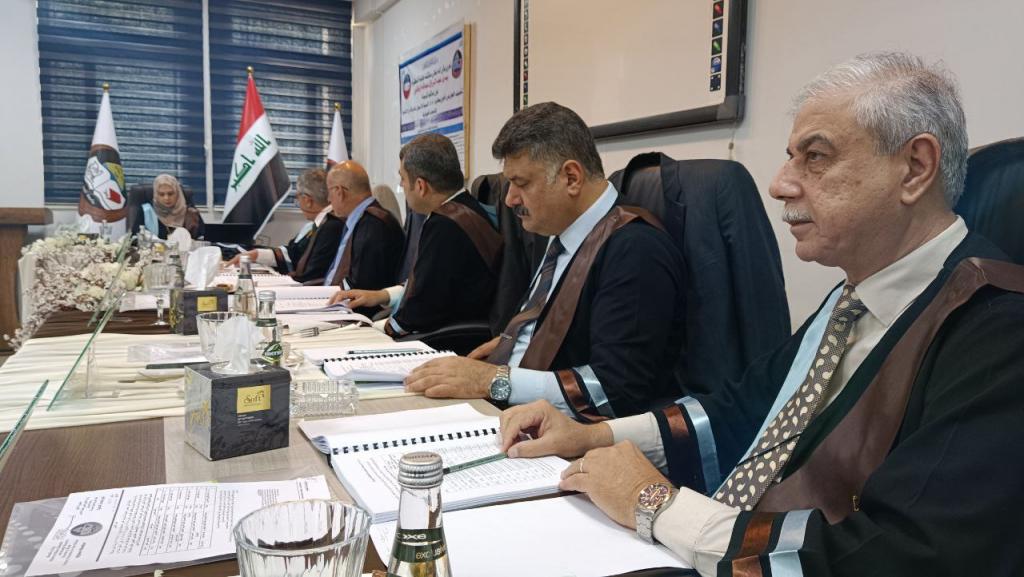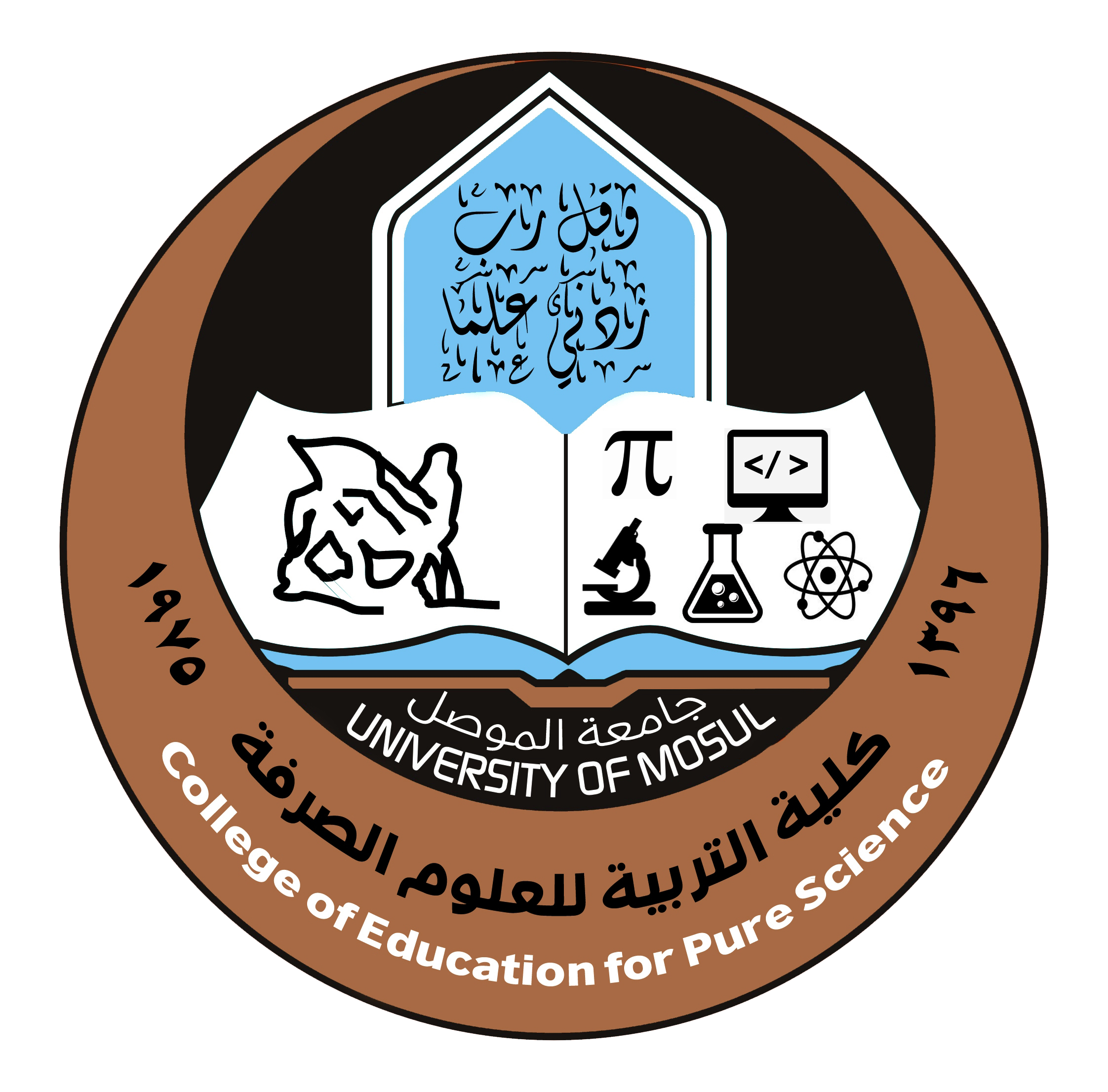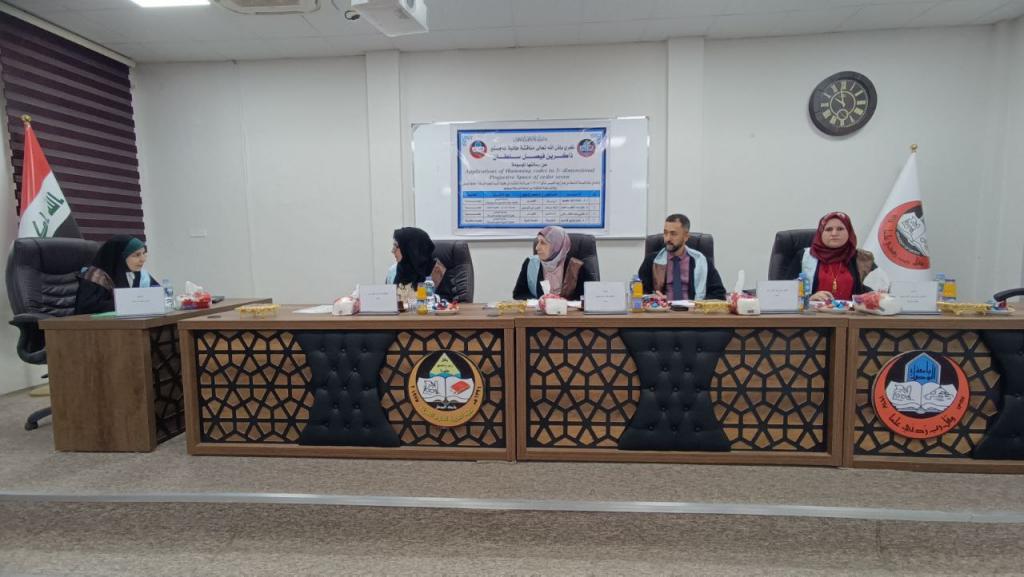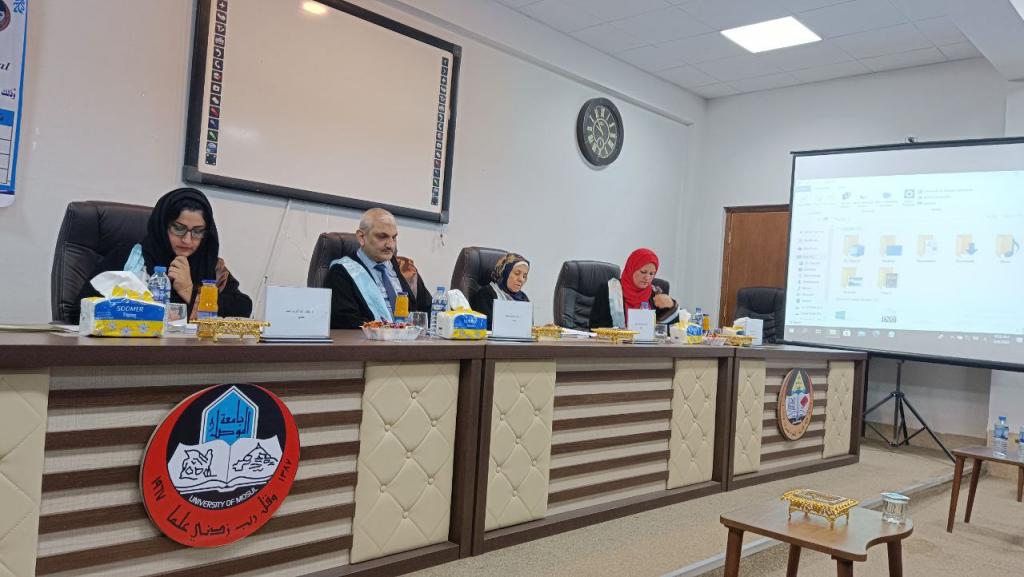9 June، 2022
PH.D. Dissertation Viva-Biology Department

PH.D. Dissertation Viva in the College of Education for Pure Science entitled “Molecular Charcterization of Diarrheagenic E. coli from Food and Animal Products”The College of Education for Pure Science, University of Mosul, has done the PH.D. Dissertation Viva entitled “Molecular Charcterization of Diarrheagenic E. coli from Food and Animal Products”,On Thursday June 9 , 2022, the College staff including the respected Dean of the College, Assistant Professor Dr. Qais Ismail Ibrahim, the Honorable Scientific Associate and Administrative Associate, the Honorable Head of the Department of Biology, and a number of the college’s teachers were attended the viva. This study, presented by the PH,D. student Yousrah Abdul-Razak Abdallah Al-Refaee in the Department of Biology, The aim of this study is to determine the level of contamination and prevalence of DEC bacteria in meat and meat products by isolating and diagnosing of these bacteria based on phenotypic characteristics in chromogenic selective medium and biochemical tests as well as using bimolecular techniques such as multiplex polymerase chain reaction in addition to determining their resistance to antibiotics.A total of 782 samples of meat and their products were collection to isolate the E.coli and diagnosed by traditional methods, and then their diagnosis was confirmed by molecular technique to detect 376 isolate belonging to E. coli contain gene UidA using polymerase chain reaction technique , of them were 234 positive isolates related to fresh meat were taken from different regions (East, West, North, South) from the Mosul city and included (beef, sheep, buffalo, goat) and from four different areas of the carcass (neck , shoulder , flank and thigh) , as well as 91 isolates belonging to meat products (minced meat, beef burger, pastrami), while 51 positive isolated from chicken meat (both local and imported) for the period from 3/2/2020 to 5/11/2020. Multiplex Polymerase chain reaction technique was used to detect the virulence factor genes of Escherichia coli isolates(DEC) by amplifying 10 primers (stx1, stx2, eae, bfpA, aggR, elt, esth, estp, invE, daaC). Ninety five pathotypes were diagnosed, where the results showed that the most common pathotype is Enterotoxigenic E. coli (ETEC) with a rate of 44 (46.32%), followed by Shiga-Toxin Producing E. coli (STEC) with a rate of 19 ( 20.05%), Enterohemorhagic E.coli (EHEC) with a rate of 14 (14.74%), followed by EAEC Enteroaggregative E. coli and atypical enteropathogenic E.coli (aEPEC) with a rate of 6 (6.32%) for each, then Enteroinavasve E.coli ( EIEC ) at a rate of 5 (5.25%) and the lowest percentage was for the pathotype of diffusive E. coli (DAEC) with a ratio 1 (1.05%). Two bacterial isolates were recorded, the first with the name stx-1- YR22, Shiga toxin 1 (stx1) Genes, which obtained the Gen Bank accession number OM304351 in addition to the presence of the second gene, stx-2 – YR22, Shiga toxin 2 (stx2) gene, which obtained the Gen Bank accession number OM304352 as it was observed from the phylogenetic tree there is affinity between the local strain (stx-1-YR22) and the remainder of the strains recorded in the gene bank which isolated from seven countries around In the world by 99%, as for the stx-2-RY22 strain, a similarity was observed between the local strain isolated from Japan and the strain isolated from Norway which recorded in the gene bank.The Viva committee was chaired by Prof. Dr. Professor Muzahim Yassin Al-Attar, University of Mosul / College of Veterinary Medicine, Microbiology and the membership of Prof. Dr. Aqil Hussein Ali Al-Kitab University / Medical Technical College, Molecular Biology, Prof. Dr. Saad Thabet Jassim, University of Fallujah/ College of Veterinary Medicine, Philosophy in Veterinary Public Health, Assist. Prof. Najwa Ibrahim Khalil University of Mosul/ College of Education for Pure Sciences, Assist. Prof. Omar Hashem Sheet, University of Mosul, College of Veterinary Medicine, Veterinary Public Health and under the supervision and membership of Prof. Dr. Raad Abdulghany Basheer Al-Sanjary from University of Mosul, College of Veterinary Medicine.








